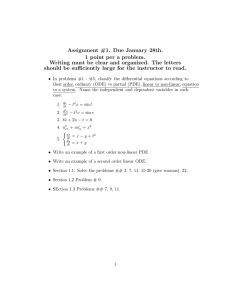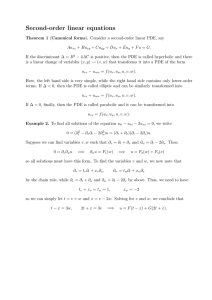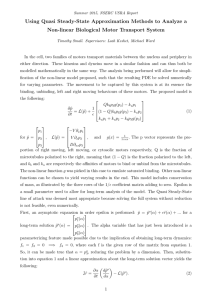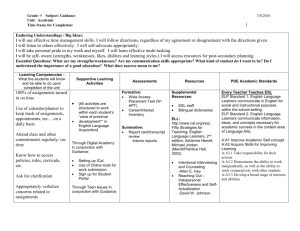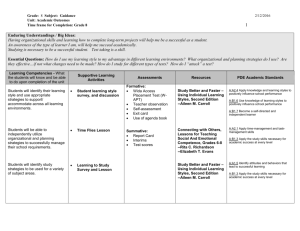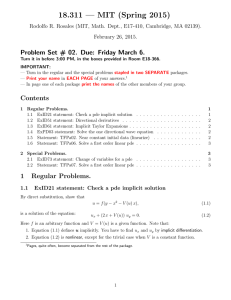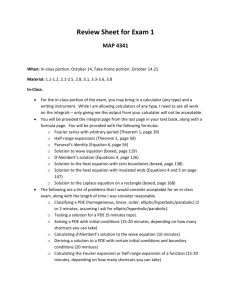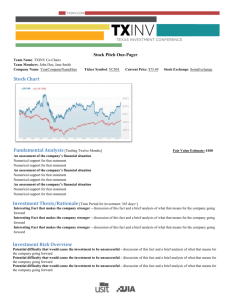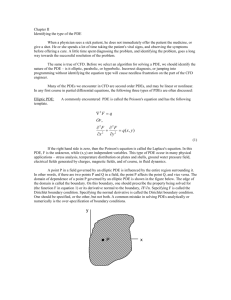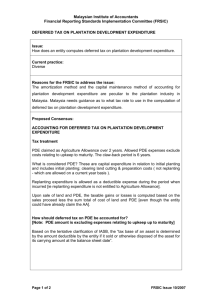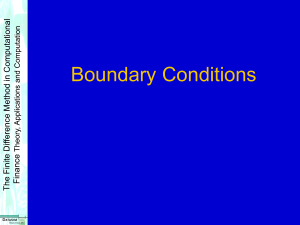S2B12C31 The modern numerical methods for complex
advertisement
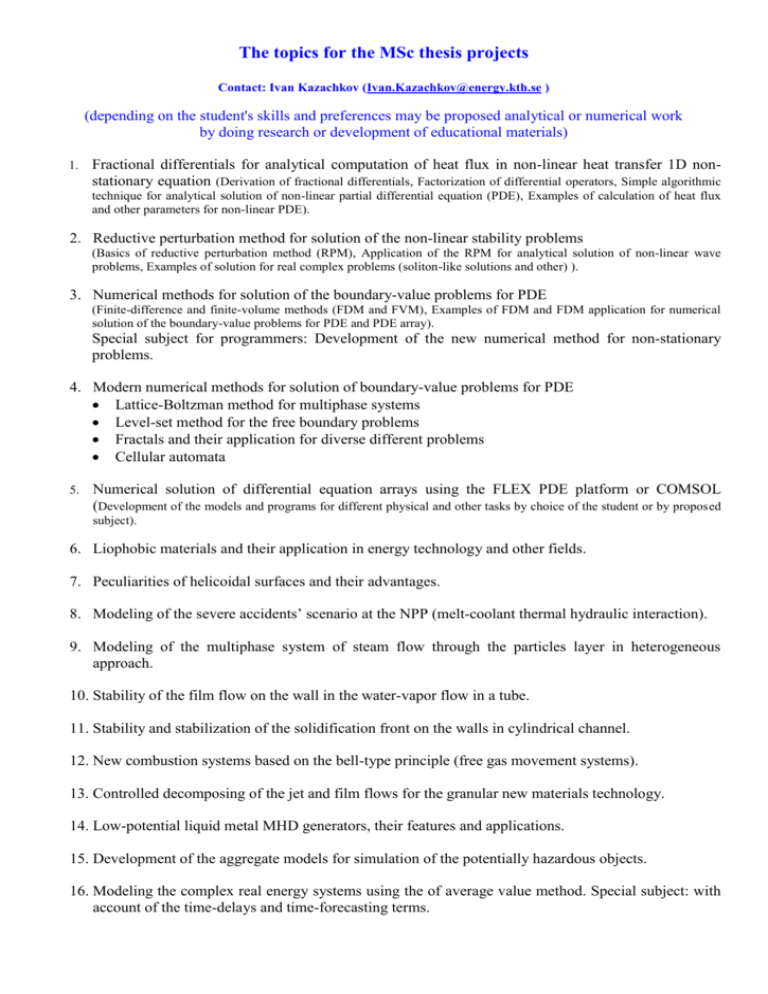
The topics for the MSc thesis projects Contact: Ivan Kazachkov (Ivan.Kazachkov@energy.kth.se ) (depending on the student's skills and preferences may be proposed analytical or numerical work by doing research or development of educational materials) 1. Fractional differentials for analytical computation of heat flux in non-linear heat transfer 1D nonstationary equation (Derivation of fractional differentials, Factorization of differential operators, Simple algorithmic technique for analytical solution of non-linear partial differential equation (PDE), Examples of calculation of heat flux and other parameters for non-linear PDE). 2. Reductive perturbation method for solution of the non-linear stability problems (Basics of reductive perturbation method (RPM), Application of the RPM for analytical solution of non-linear wave problems, Examples of solution for real complex problems (soliton-like solutions and other) ). 3. Numerical methods for solution of the boundary-value problems for PDE (Finite-difference and finite-volume methods (FDM and FVM), Examples of FDM and FDM application for numerical solution of the boundary-value problems for PDE and PDE array). Special subject for programmers: Development of the new numerical method for non-stationary problems. 4. Modern numerical methods for solution of boundary-value problems for PDE Lattice-Boltzman method for multiphase systems Level-set method for the free boundary problems Fractals and their application for diverse different problems Cellular automata 5. Numerical solution of differential equation arrays using the FLEX PDE platform or COMSOL (Development of the models and programs for different physical and other tasks by choice of the student or by proposed subject). 6. Liophobic materials and their application in energy technology and other fields. 7. Peculiarities of helicoidal surfaces and their advantages. 8. Modeling of the severe accidents’ scenario at the NPP (melt-coolant thermal hydraulic interaction). 9. Modeling of the multiphase system of steam flow through the particles layer in heterogeneous approach. 10. Stability of the film flow on the wall in the water-vapor flow in a tube. 11. Stability and stabilization of the solidification front on the walls in cylindrical channel. 12. New combustion systems based on the bell-type principle (free gas movement systems). 13. Controlled decomposing of the jet and film flows for the granular new materials technology. 14. Low-potential liquid metal MHD generators, their features and applications. 15. Development of the aggregate models for simulation of the potentially hazardous objects. 16. Modeling the complex real energy systems using the of average value method. Special subject: with account of the time-delays and time-forecasting terms.
